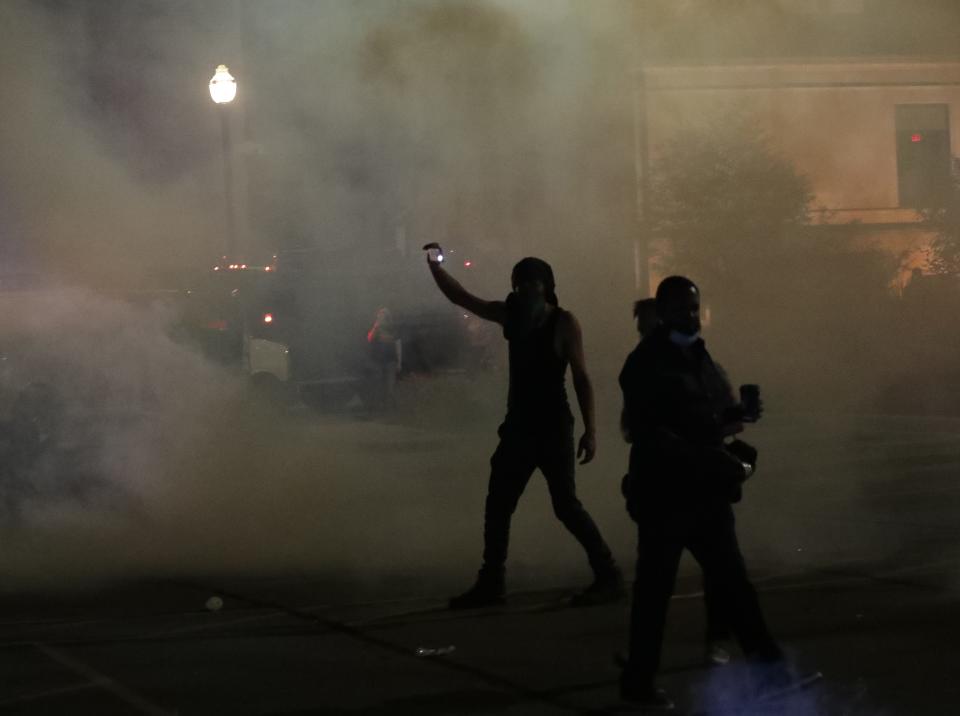Why Arizona's newly passed unconstitutional ban on filming police will stand
- Oops!Something went wrong.Please try again later.
Given what we’ve seen lately from the U.S. Supreme Court, there are two things we know for sure about the newly passed Arizona law that could land you on jail for filming the police.
First, the law is clearly unconstitutional.
Second, the law will be allowed to stand.
Gov. Doug Ducey signed a bill passed by the Republican-controlled Legislature that makes recording police activity while fewer than 8 feet away, after being asked by officers to stop, a misdemeanor for which you could get 30 days in jail.
The law’s sponsor, Fountain Hills Republican Rep. John Kavanagh, who spent decades as a police officer for the Port Authority of New York and New Jersey, says the 8-feet rule isn’t a lot to ask.
There's already a law against interference
Maybe not, but the police activity we’re talking about is often fluid, with distances changing, and with no one standing around measuring the number of feet from here to there, particularly (and hopefully) not the officers involved.
And not only does such a law violate First Amendment rights, it is completely unnecessary.
More from Montini: Filming ban would make officers' lives more difficult
There is already a law on the books that makes it a crime to interfere with the police.
Arizona Revised Statue 13-2402, “Obstructing government operations,” says it’s a crime if, “by using or threatening to use violence or physical force, a person knowingly obstructs, impairs or hinders the performance of a governmental function by a public servant acting under color of his official authority, or the enforcement of the penal law or the preservation of the peace by a peace officer acting under color of his official authority.”
Lower courts will shoot the new law down

It is not a matter of measuring distance or picture taking.
It’s a matter of actual interference, which should be a crime.
The redundant bill that Ducey signed doesn’t offer law enforcement any more protection than they already have. If anything, it makes it more difficult for them to do their job by seeming to thwart the efforts of law-abiding citizens exercising a fundamental American right.
As local First Amendment attorney Dan Barr said of the new law, “It’s blatantly unconstitutional.”
No doubt it will be challenged in court.
And no doubt lower courts will shoot it down.
An assault on free speech can't be far behind
But if a lawsuit challenging the new Arizona law reaches the new supermajority on the U.S. Supreme Court … it will stand.
The six archconservative justices who now dominate the court seem to relish laying waste to the Constitution.
In a matter of days recently the court overturned Roe v. Wade, robbing women of their body autonomy; tore down much of the barrier between church and state; gutted the firearms safety tools available to states and cities; and stripped the government from essential environment protection authority.
Given all that, eroding and eventually eviscerating free speech protections can’t be far behind, so that before long, only the most radical right-wing voices will be heard and everyone else will be …
Reach Montini at ed.montini@arizonarepublic.com.
For more opinions content, please subscribe.
This article originally appeared on Arizona Republic: Arizona's ban on filming police is unconstitutional but will stand

